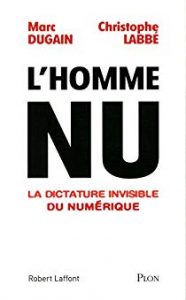The internet security and our own privacy is certainly something we should address as soon as possible as a society. In fact, nothing that we do with the technologies now is kept secret, we are like naked men. It will be an issue the more our life is connected to the technology, and with the increasing Artificial Intelligence-driven technology. It already started. 4 years ago, I was at the beach chatting with a friend saying how nice the beach was that day. Just a minute later, I opened my Facebook and I saw an ad for a self-inflatable mattress popping on my phone. I was shocked, how can it be possible that my conversations are under surveillance, analyzed and used to offer me services. This can be seen as anodyne and insignificant but it is a huge breach in our life privacy. How can a personal conversation on my personal chat system can be intercepted and used like this, without my consent. Without my consent? Really? That is unfortunately not true, we are all consenting to this. You know the boring text in very little characters that we rarely read and that we click I AGREE. I read this interesting book in French and GAFA (Google, Amazon, Facebook and Apple) control already 90% of the information that circulate on the web. And it goes further, in the text A guide for resisting Edtech it is said: Thanks to the “internet of things,” all our various connections can be monitored by our ISPs — from our physical location to the temperature we keep our homes to the music we ask Alexa to play for us. (In fact, Alexa processes all of our speech when it is on, even when we are not addressing it.)
So now, not only we are under surveillance when we are using the internet. But almost at all time with gadgets like Alexa, Siri and Google Home to spy us. An important job of the teachers of the 21st century is to informed their students about that and to develop their critical multiliteracies. In the text it says: Even tools we love — that have potential to do good work in the world — need careful scrutiny. It is, in fact, part of our care for those tools and students who use them that demands we approach educational technology critically. There is no good use in tool fidelity. For example, uncritical belief in the superiority of the Mac OS over Windows or Linux may lead us to overlook how single-platform solutions exclude those without access to them. Tools (and software) are not something we should ever be “loyal” to.
These technologies are so implemented in our lives that we view them as living things, like pets that we should be loyal to. Moreover, like pets we are more than loyal to, we like to “feed them to”. Some really good questions in the text emerge: What flexibility do we have to be anonymous, or to protect our data? Where is data housed; who owns the data? What are the implications for in-class use? Will others be able to use/copy/own our work there?
There are big issues of intellectual properties and plagiarism. Students have to be aware that their hard labor is maybe in some other parties’ property when they use technologies.
Reference
L’homme nu – La dictature invisible du numérique by Marc Dugain and Christophe Labbé.
